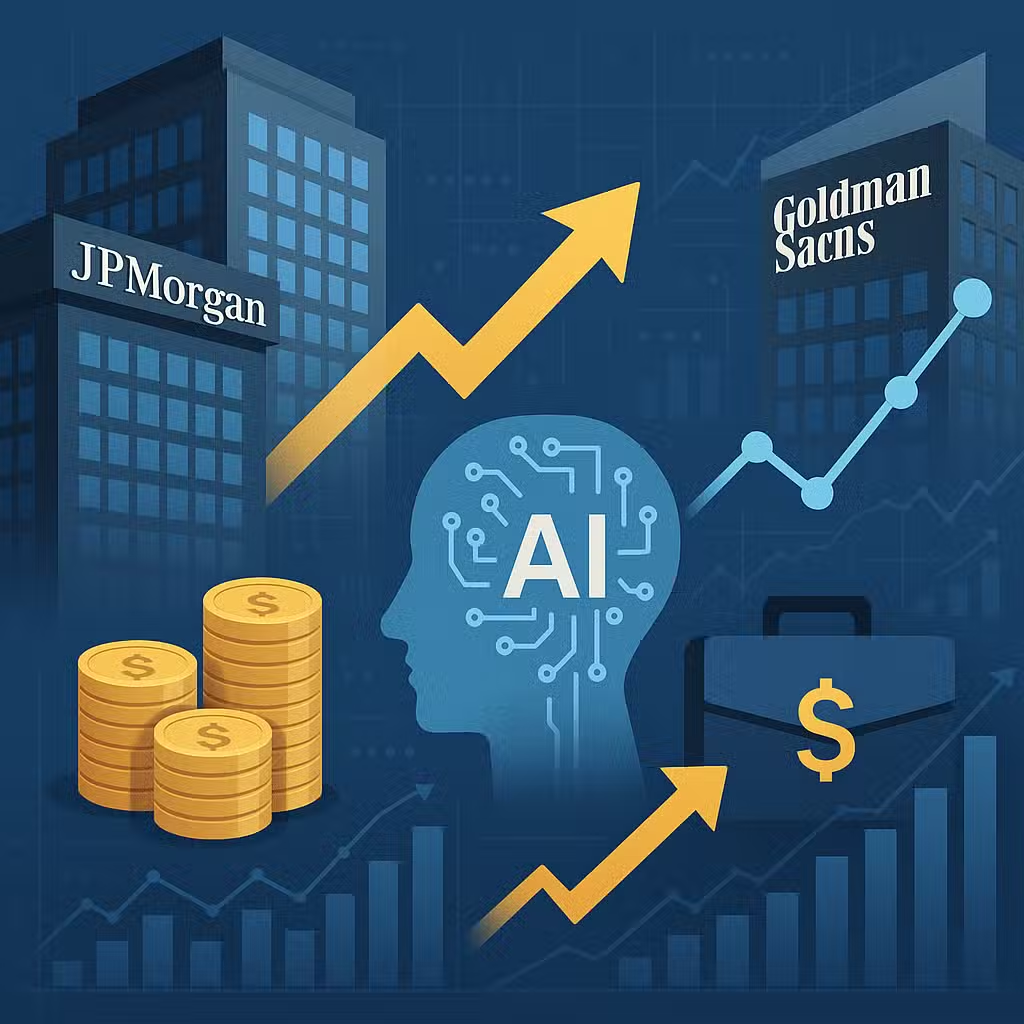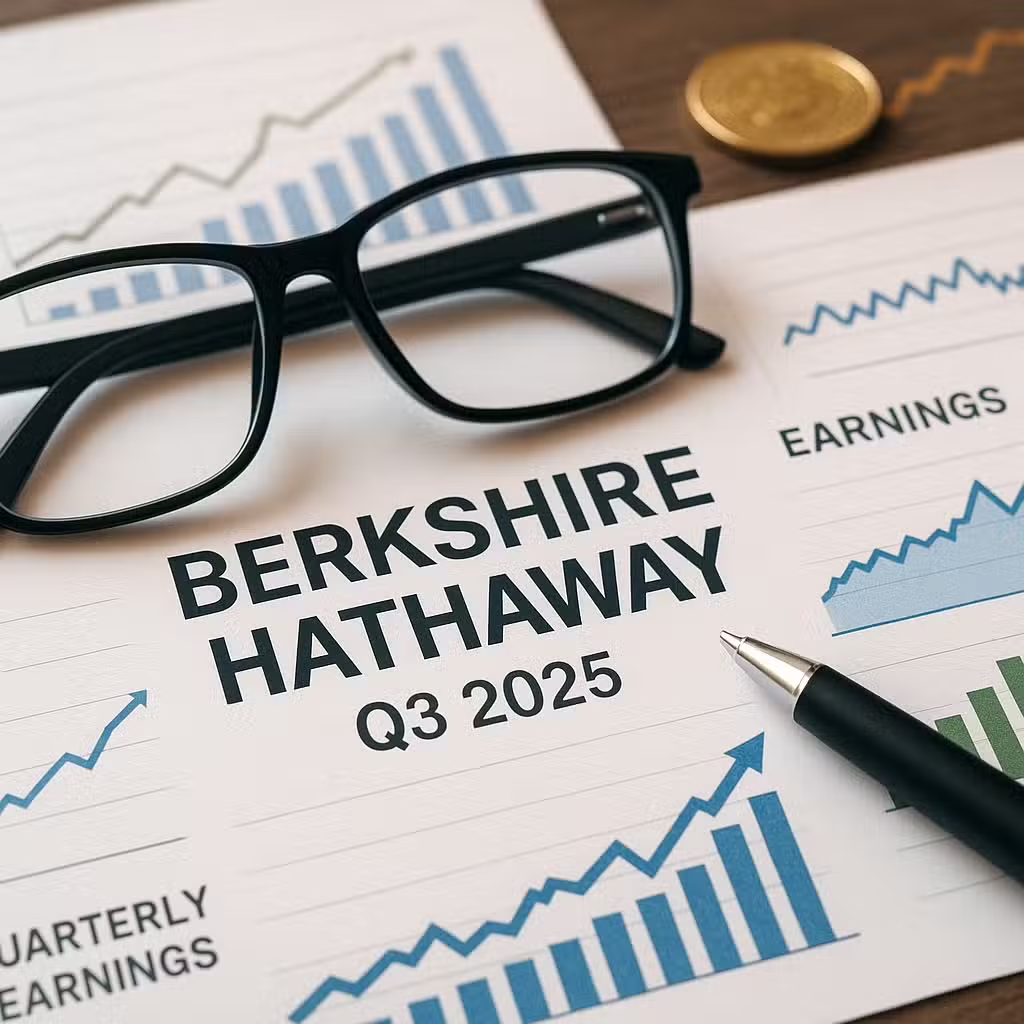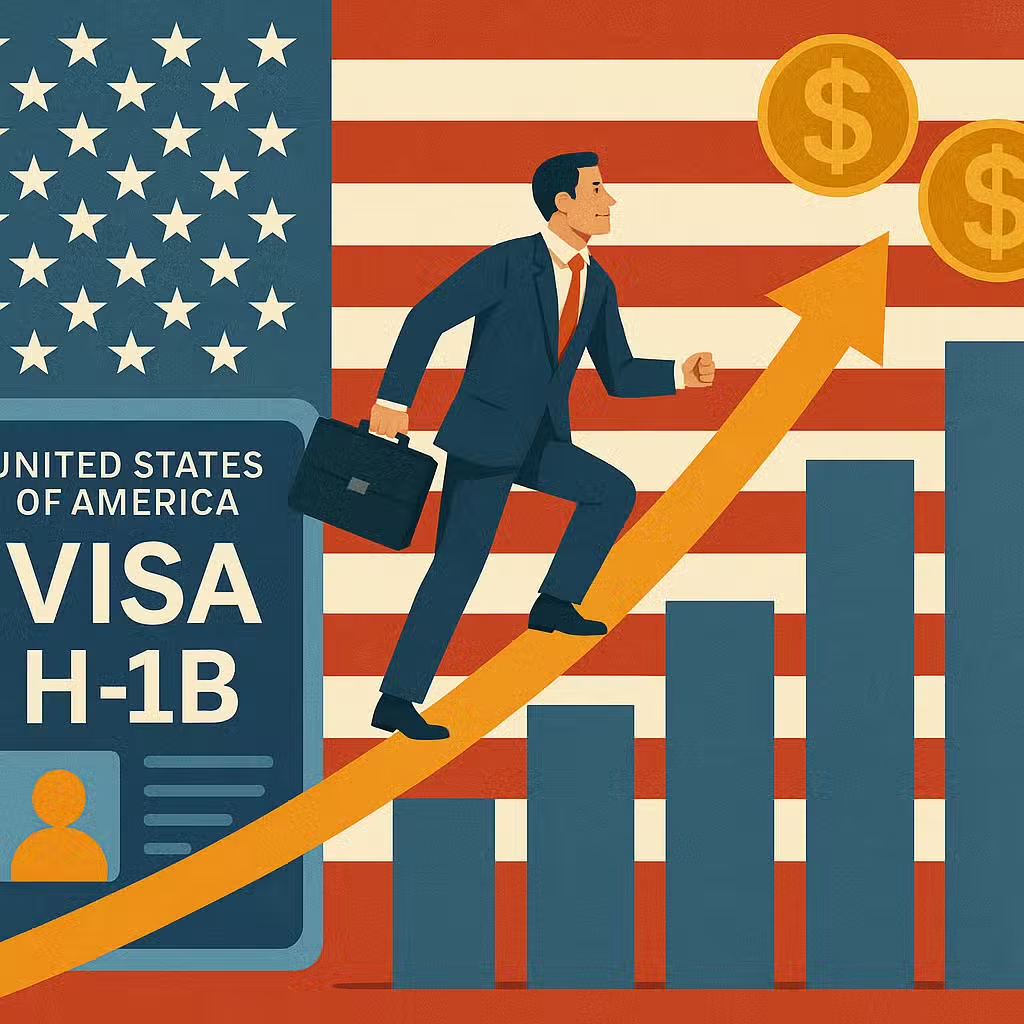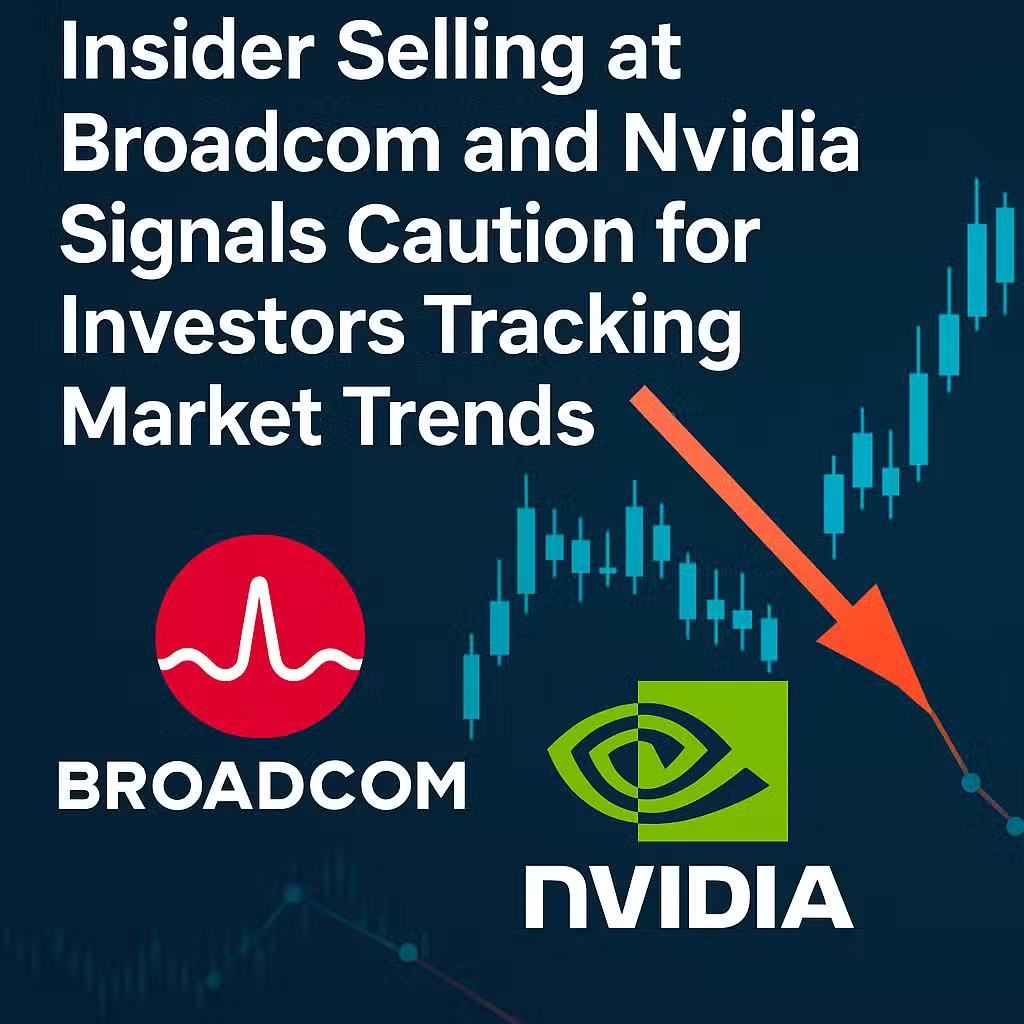JPMorgan, Goldman Sachs Use AI to Cut Hiring Costs, Boosting Profit Potential for Investors
Imagine you’re running a lemonade stand, and suddenly, you get a fancy new machine that can squeeze lemons, mix sugar, and pour drinks faster than any person could. That’s kind of what’s happening on Wall Street as banks start using artificial intelligence (AI) to do more of their work. This shift is big news for investors, because it could shake up how banks make money and manage their teams.
Why Investors Should Care About AI in Banking
Banks like JPMorgan Chase and Goldman Sachs are using AI to work smarter and faster. This means they might not need to hire as many people, even when business is booming. For investors, this could lead to higher profits and more efficient companies, but it also brings risks if jobs are lost too quickly or if AI doesn’t deliver as promised.
The Bull Case: Why AI Could Be Good for Banks and Investors
- Higher Profits: JPMorgan’s profit jumped 12% to $14.4 billion last quarter, while hiring only went up by 1%. That means more money without adding lots of new workers.
- Better Efficiency: AI can handle tasks like customer service, checking documents, and managing trades much faster than people can, freeing up workers for more complex jobs.
- Staying Ahead: Banks that use AI well could outpace rivals, just like tech giants such as Microsoft and Amazon are doing in their industries.
- Learning from Tech: A study by McKinsey found that AI could add $1 trillion of value each year to the global banking sector by 2030 (source).
The Bear Case: Risks and Concerns with AI
- Job Losses: JPMorgan expects operations and support staff to shrink by at least 10% over five years, even if business grows. That could mean thousands of jobs lost.
- Unhappy Workers: Goldman Sachs’ CEO warned that some employees might have a tough time as the company changes, and there could be layoffs this year.
- Tech Isn’t Perfect: If AI makes mistakes or can’t handle important tasks, it could hurt customer trust and require expensive fixes.
- Market Reactions: Investors may punish banks if AI costs more than it saves, or if there’s public backlash over job cuts.
What’s Happening Now?
Both JPMorgan and Goldman Sachs are rolling out AI in nearly every part of their business. JPMorgan is using AI to help with everything from talking to clients to behind-the-scenes paperwork. Goldman Sachs is also reorganizing around AI, aiming to boost speed, profits, and employee experiences.
Even with all this change, banks are still growing. JPMorgan had over 318,000 employees in September, and Goldman’s headcount is up this year. But leaders are clear: they’re being much more careful about hiring, and are looking for ways to do more with fewer people.
What Other Companies Are Doing
Banks aren’t alone. Tech giants like Amazon and Microsoft are also telling staff to expect changes from AI, including fewer new jobs and possible layoffs. Across all industries, companies are being more honest about how AI could shake things up for workers and investors.
Historically, new technology has always changed the job market. For example, when ATMs became common in the 1980s, bank teller jobs changed but didn’t disappear; tellers started helping with more complex tasks instead (source).
Investor Takeaway
- Watch for Efficiency Gains: Banks using AI well could see higher profits and stock prices over time.
- Check Labor Trends: Pay attention to hiring, layoffs, and employee morale at major banks—these can affect company performance.
- Diversify: Consider spreading investments across different sectors, since AI’s impact will vary by industry.
- Follow Tech Leaders: See how tech companies handle AI changes; banks may follow similar paths.
- Stay Informed: Keep up with news on AI in banking, as the story is just getting started and could offer new opportunities—or risks—for your portfolio.
For the full original report, see CNBC







